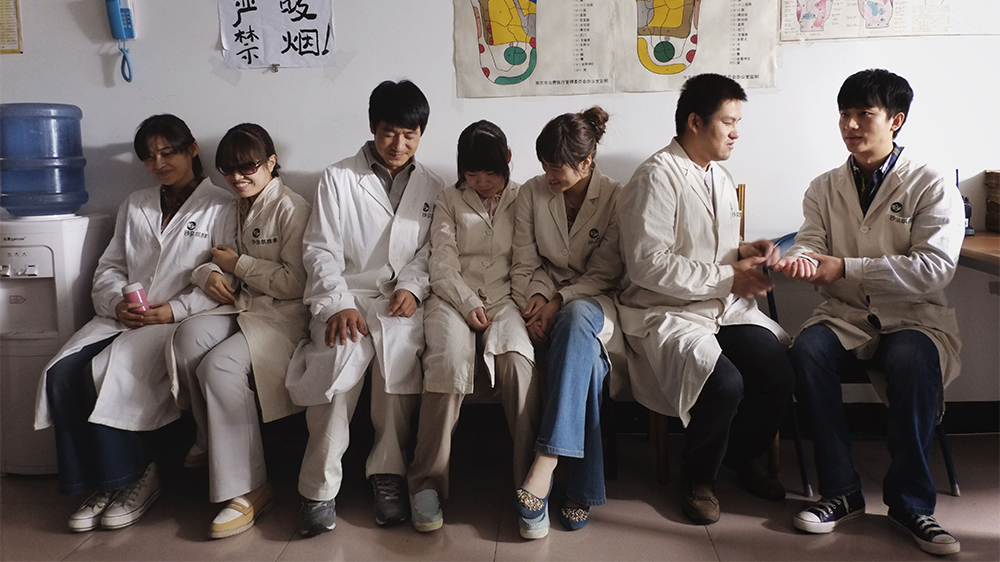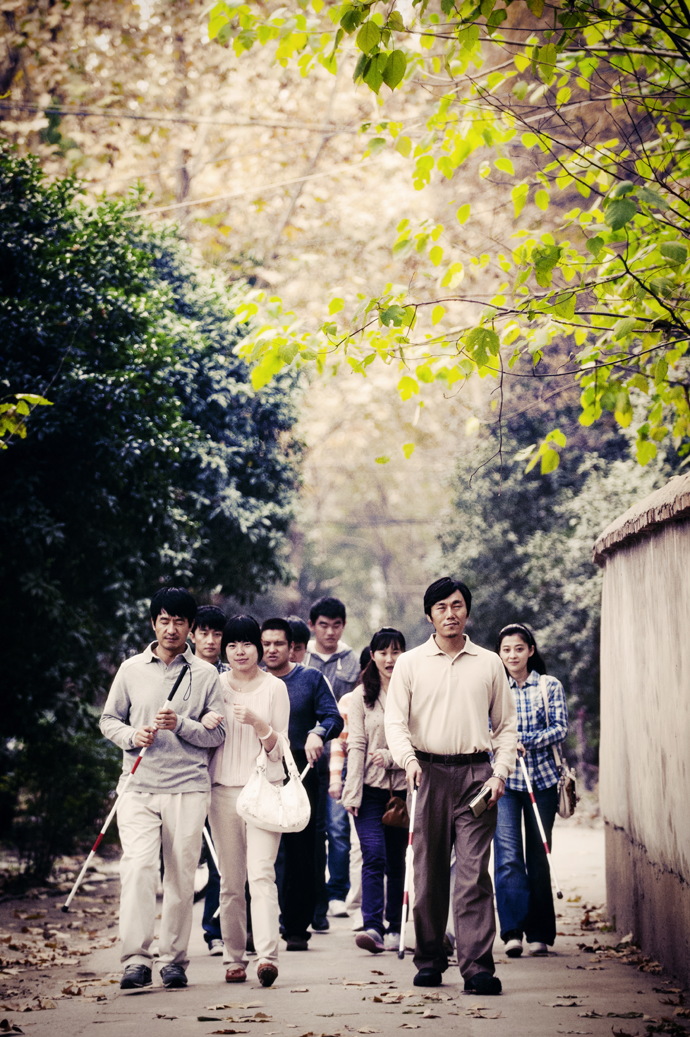By Pui See Tsang
Love among the sightless is the engrossing, at times moving, dramatic thread that links multiple relationships in Blind Massage, one of the most convincing films made by Chinese director Lou Ye in recent years. Putting aside the torrid sexual and emotional dramas of works like the 2011 ‘Love and Bruises’ shot in Paris and his infidelity drama ‘Mystery’, he describes these love stories as plain human affairs full of hope and frustration, poetry and banality, straddling an interesting middle ground between realism and imagination. Ye’s auteur reputation should help this Wild Bunch title to find its way to sensitive audiences.
Blind Massage fields an ensemble cast of blind masseurs, some played by the sighted, most notably Lou Ye’s regular collaborators Guo Xiaodong and Quin Hao. Spring Fever’s Xuang Xuan and Huang Lu play the angry young blind boy Xiao Ma, who started the film with a botched suicide attempt, and Mann, his prostitute lover eventually. Mei Ting is Du Hong, the center’s beautiful masseuse. They share scenes with blind actors including Zhang Lei as Kong, who has a natural ease.
Into this close-knit community comes Sha’s old classmate Dr. Wang (Guo Xiaodong), broke from stock losses in Shenzhen, and eloping with his young, foxy, partially sighted girlfriend Kong (Zhang Lei). Then comes proud, self-contained Du Hong (Mei Ting, perfectly poised), who regards her clients’ daily flattery on her beauty a nuisance, and who is doggedly courted by Fuming; she rejects him, dismissing his professed love as “an obsession with a concept,” since he cannot grasp what physical beauty is. Another young masseur is handsome lad Xiao Ma (Huang Xuan), whose hormones are racing and who becomes infatuated with Kong. His heart remains set on her even after his pal Yiguang (Mu Huaipeng) initiates him into the pleasures of Nanjing’s red-light district, where he and sassy sex worker Mann (Wang Lu) find casual emotional refuge in each other.
Adopting a clean and simple storyline that focuses on ensemble acting rather than on the narrative riddles and knotty reversals that have defined his oeuvre, Lou delves into each portage’s emotional world with a documentary-like observational style that is nonetheless entirely engrossing. Gradually their individual hang-ups surface, revealing the unspoken wounds of social discrimination — as when Fuming goes on (of all things) a blind date, taking a risk that only reinforces the futility of his hopes of becoming integrated into society, or when Wang vents his own self-loathing and injured pride in a shockingly gory confrontation with debt collectors. Other than a somewhat manufactured and overwrought twist in the third act, the film wraps on a gently forlorn that captures the randomness and mutability of life. The film is very meaningful that calls out another message, which is don’t ignore the minority. The society are very easily overlook of how hard the others live. We should all stop being selfish and start caring about people. This film is a noise from blind people who wants us to pay more attention on them and understand their situation. They live way harder than us.


Leave a Reply